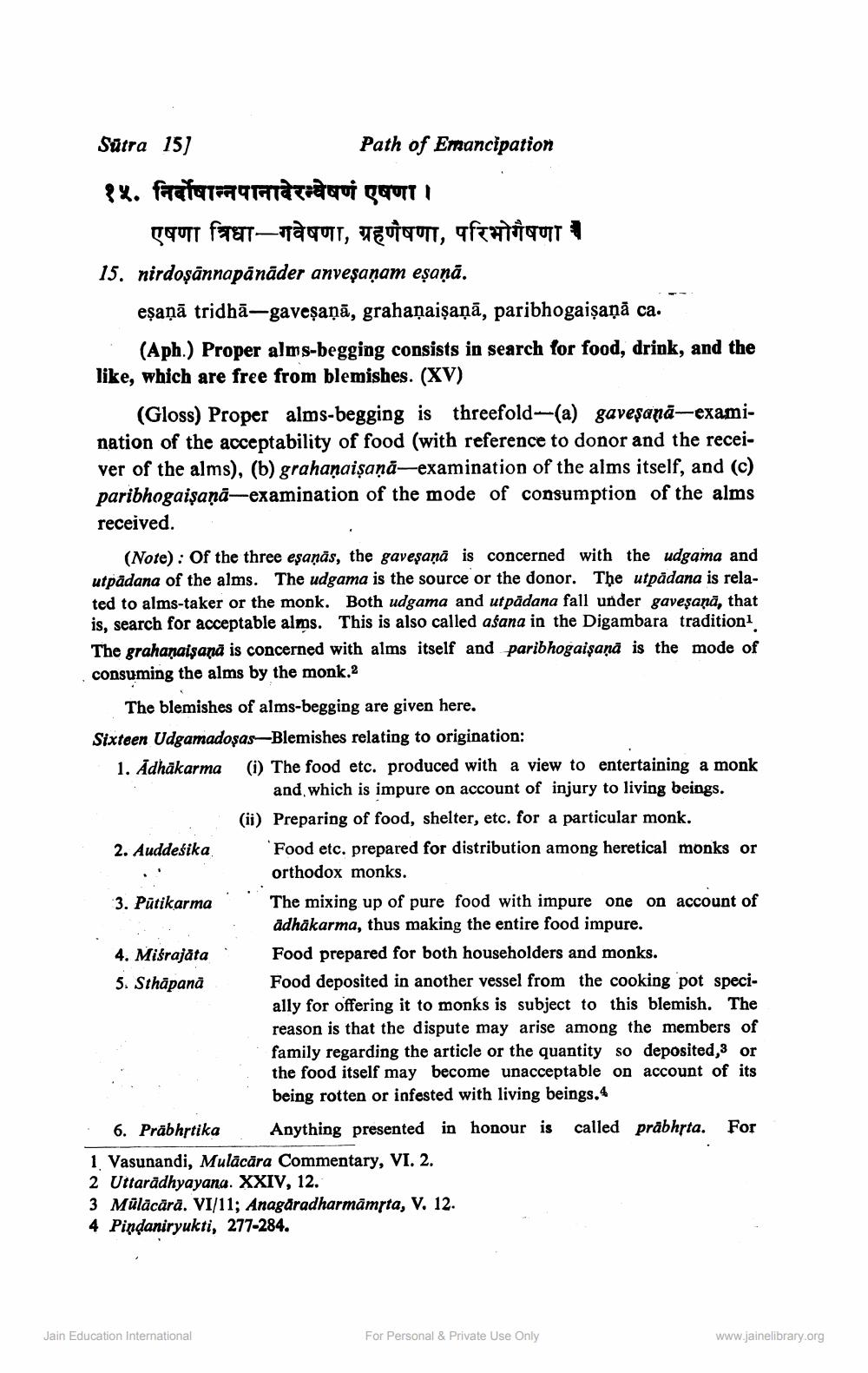________________
Sutra 15)
Path of Emancipation १५. निर्दोषान्नपानावेरन्वेषणं एषणा।
एषणा विधा-गवेषणा, ग्रहणैषणा, परिभोगैषणा । 15. nirdoşānnapānāder anveṣaṇam eșaņā.
eşaņā tridhā—gaveşaņā, grahaņaişaņā, paribhogaişaņā ca.
(Aph.) Proper alms-begging consists in search for food, drink, and the like, which are free from blemishes. (XV)
(Gloss) Proper alms-begging is threefold-(a) gaveșanā-examination of the acceptability of food (with reference to donor and the receiver of the alms), (b) grahanaişană-examination of the alms itself, and (c) paribhogaişaņā-examination of the mode of consumption of the alms received.
(Note): Of the three eșaņās, the gaveşaņā is concerned with the udgama and utpādana of the alms. The udgama is the source or the donor. The utpädana is related to alms-taker or the monk. Both udgama and utpädana fall under gaveşanā, that is, search for acceptable alms. This is also called aśana in the Digambara tradition1 The grahanaisana is concerned with alms itself and paribhogaişana is the mode of consuming the alms by the monk.2
The blemishes of alms-begging are given here. Sixteen Udgamadosas-Blemishes relating to origination: 1. Ādhākarma (i) The food etc. produced with a view to entertaining a monk
and which is impure on account of injury to living beings.
(ii) Preparing of food, shelter, etc. for a particular monk. 2. Auddešika Food etc. prepared for distribution among heretical monks or
orthodox monks. 3. Pütikarma The mixing up of pure food with impure one on account of
adhakarma, thus making the entire food impure. 4. Miśrajăta Food prepared for both householders and monks. 5. Sthapana Food deposited in another vessel from the cooking pot speci
ally for offering it to monks is subject to this blemish. The reason is that the dispute may arise among the members of family regarding the article or the quantity so deposited, 3 or the food itself may become unacceptable on account of its
being rotten or infested with living beings.4 6. Prābhstika Anything presented in honour is called prabhrta. For 1 Vasunandi, Mulācāra Commentary, VI. 2. 2 Uttaradhyayana. XXIV, 12. 3 Mülācārā. VI/11; Anagaradharmāmsta, V. 12. 4 Pindaniryukti, 277-284.
Jain Education International
For Personal & Private Use Only
www.jainelibrary.org




